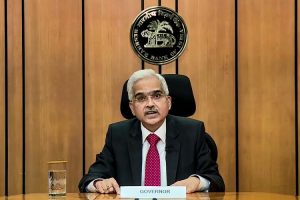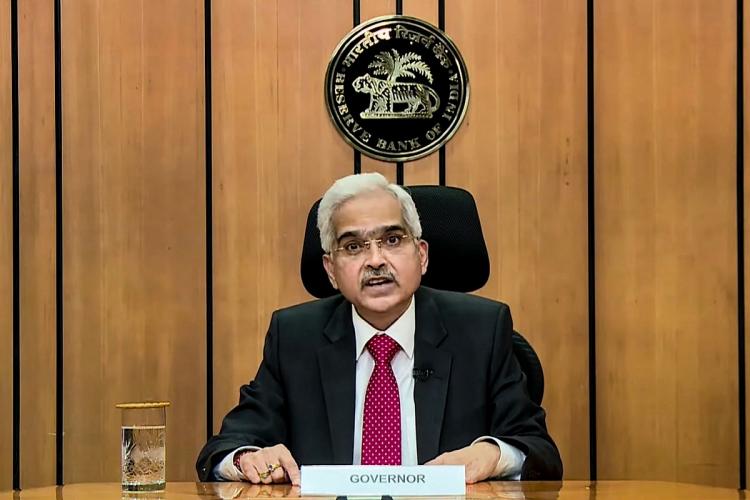
The Reserve Bank of India has retained its retail inflation forecast for the current fiscal year at 6.7 per cent. It has increased the policy repo rate under the liquidity adjustment facility (LAF) by 50 basis points to 5.40 per cent with immediate effect. RBI hiked the policy repo rate for the third time in a row. The Reserve Bank of India’s Monetary Policy Committee is headed by the Reserve Bank of India (RBI) Governor Shaktikanta Das. The next meeting of the rate-setting panel is scheduled for September 28-30, 2022.
Buy Prime Test Series for all Banking, SSC, Insurance & other exams
Notable Point:
All members of the MPC – Dr Shashanka Bhide, Dr Ashima Goyal, Prof. Jayanth R. Varma, Dr Rajiv Ranjan, Dr Michael Debabrata Patra and Shri Shaktikanta Das – unanimously voted to increase the policy repo rate by 50 basis points to 5.40 per cent. All members voted to remain focused on the withdrawal of accommodation to ensure that inflation remains within the target going forward while supporting growth. Prof. Jayanth R. Varma expressed reservations about this part of the resolution.
Consequently, the various rates are as under:
- Policy Repo Rate: 5.40%
- Standing Deposit Facility (SDF): 5.15%
- Marginal Standing Facility Rate: 5.65%
- Bank Rate: 5.65%
- Fixed Reverse Repo Rate: 3.35%
- CRR: 4.50%
- SLR: 18.00%
Key Points of the Monetary Policy:
- GDP growth projection for 2022-23 retained at 7.2 per cent.
- GDP growth projection: Q1 at 16.2 pc; Q2 at 6.2 pc; Q3 at 4.1 pc; and Q4 at 4 pc.
- Q1:2023-24 real GDP growth is projected at 6.7 per cent.
- Domestic economic activity shows signs of broadening.
- Retail inflation projection for 2022-23 retained at 6.7 per cent.
- Inflation projection: Q2 at 7.1 pc; Q3 at 6.4 pc; and Q4 at 5.8 pc; Q1:2023-24 at 5 pc.
- India saw large portfolio outflows of $13.3 billion in FY23 up to August 3.
- Financial sector well capitalised and sound.
- India’s foreign exchange reserves provide insurance against global spillovers.
- MPC decides to remain focused on the withdrawal of an accommodative stance to check inflation.
- Depreciation of rupee more on account of appreciation of US dollar rather than weakness in macroeconomic fundamentals of the Indian economy.
- RBI to focus on maintaining the stability of the rupee.
- Rupee depreciated by 4.7 pc against US dollar this fiscal year till August 4.
- India’s foreign exchange reserves remain the fourth largest globally.
- Mechanism to be activated to allow NRIs to use Bharat Bill Payment System for payments of utility and education on behalf of their families in India.
Some important instruments of Monetary Policy:
The RBI’s Monetary Policy has several direct and indirect instruments which are used for implementing the monetary policy. Some important instruments of Monetary Policy are as follows:
Repo Rate:
It is the (fixed) interest rate at which banks can borrow overnight liquidity from the Reserve Bank of India against the collateral of government and other approved securities under the liquidity adjustment facility (LAF).
Reverse Repo Rate:
It is the (fixed) interest rate at which the Reserve Bank of India can absorb liquidity from banks on an overnight basis, against the collateral of eligible government securities under the LAF.
Liquidity Adjustment Facility (LAF):
The LAF has overnight as well as term repo auctions under it. The term repo helps in the development of the inter-bank term money market. This market sets the benchmarks for the pricing of loans and deposits. This helps in improving the transmission of monetary policy. As per the evolving market conditions, the Reserve Bank of India also conducts variable interest rate reverse repo auctions.
Marginal Standing Facility (MSF):
MSF is a provision that enables the scheduled commercial banks to borrow an additional amount of overnight money from the Reserve Bank of India. Bank can do this by dipping into their Statutory Liquidity Ratio (SLR) portfolio up to a limit at a penal rate of interest. This helps the banks to sustain the unanticipated liquidity shocks faced by them.
Important takeaways for all competitive exams:
- RBI 25th Governor: Shaktikanta Das
- Headquarters of RBI: Mumbai
- RBI Founded: 1 April 1935, Kolkata.
Repo Rate vs Bank Rate: Most Valuable Differences




 Top 10 Under 40 Billionaires: This Fello...
Top 10 Under 40 Billionaires: This Fello...
 Historic Moment! India Sets Guinness Rec...
Historic Moment! India Sets Guinness Rec...
 Which River is known as the Milk River o...
Which River is known as the Milk River o...








